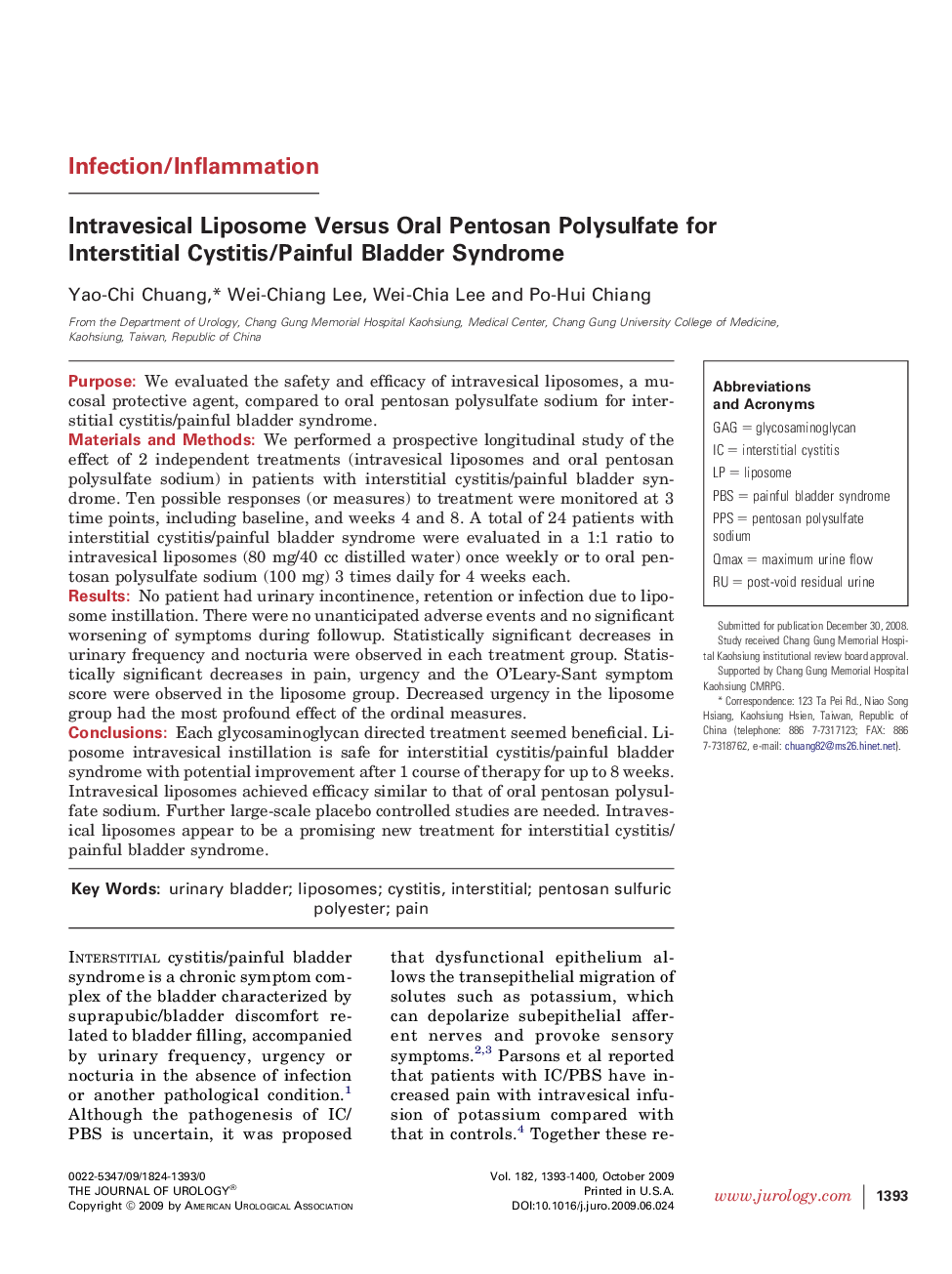| Article ID | Journal | Published Year | Pages | File Type |
|---|---|---|---|---|
| 3873654 | The Journal of Urology | 2009 | 8 Pages |
PurposeWe evaluated the safety and efficacy of intravesical liposomes, a mucosal protective agent, compared to oral pentosan polysulfate sodium for interstitial cystitis/painful bladder syndrome.Materials and MethodsWe performed a prospective longitudinal study of the effect of 2 independent treatments (intravesical liposomes and oral pentosan polysulfate sodium) in patients with interstitial cystitis/painful bladder syndrome. Ten possible responses (or measures) to treatment were monitored at 3 time points, including baseline, and weeks 4 and 8. A total of 24 patients with interstitial cystitis/painful bladder syndrome were evaluated in a 1:1 ratio to intravesical liposomes (80 mg/40 cc distilled water) once weekly or to oral pentosan polysulfate sodium (100 mg) 3 times daily for 4 weeks each.ResultsNo patient had urinary incontinence, retention or infection due to liposome instillation. There were no unanticipated adverse events and no significant worsening of symptoms during followup. Statistically significant decreases in urinary frequency and nocturia were observed in each treatment group. Statistically significant decreases in pain, urgency and the O'Leary-Sant symptom score were observed in the liposome group. Decreased urgency in the liposome group had the most profound effect of the ordinal measures.ConclusionsEach glycosaminoglycan directed treatment seemed beneficial. Liposome intravesical instillation is safe for interstitial cystitis/painful bladder syndrome with potential improvement after 1 course of therapy for up to 8 weeks. Intravesical liposomes achieved efficacy similar to that of oral pentosan polysulfate sodium. Further large-scale placebo controlled studies are needed. Intravesical liposomes appear to be a promising new treatment for interstitial cystitis/painful bladder syndrome.
